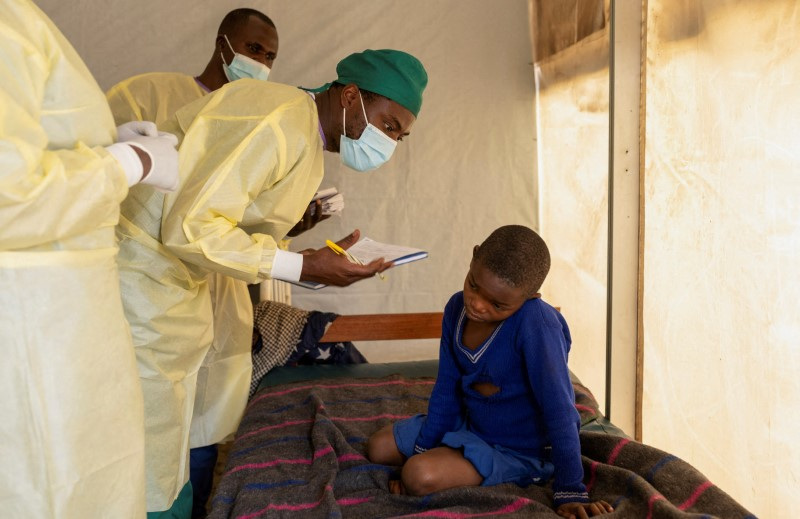BANGKOK — Thai health authorities have detected a case of mpox in a European traveler who recently arrived from Africa, raising concerns about the potential introduction of a new strain to the country, a senior disease control official reported Wednesday.
Thongchai Keeratihattayakorn, director-general of the Department of Disease Control, told Reuters that the case involves a 66-year-old European man with residency in Thailand. The patient arrived on August 14 from an unspecified African country where mpox is currently spreading.

“We are treating this case as if it were the Clade 1 form of mpox,” Thongchai said, referring to a strain not previously detected in Thailand. The country has recorded 800 cases of mpox Clade 2 since 2022 but has yet to confirm any instances of Clade 1 or Clade 1b variants.
Thai authorities are awaiting test results, expected by Friday, to confirm the specific strain. The identification of the variant is crucial for tailoring public health responses and understanding potential transmission patterns.
Thongchai emphasized that the patient’s exposure to others was limited. “After he arrives from the flight, there is very little time frame where he came into contact with others,” he stated. “He arrives around 6 pm and on the next day, August 15, he went to see the doctor at the hospital.”
As a precautionary measure, health officials are monitoring 43 individuals in Thailand who may have come into contact with the patient. This surveillance is part of standard protocol to prevent potential spread of the virus.
The patient’s travel history includes a transit stop in an unnamed Middle Eastern country before arriving in Thailand, adding complexity to contact tracing efforts across international borders.

Mpox, formerly known as monkeypox, is a viral infection that can cause flu-like symptoms and distinctive skin lesions. The global outbreak in 2022 led to increased awareness and monitoring of the disease worldwide.
Thailand’s vigilance in detecting and responding to this case demonstrates the ongoing challenges in managing infectious diseases in an era of global travel. The potential introduction of a new mpox strain underscores the importance of international cooperation in disease surveillance and control.
As health authorities await the test results, this case serves as a reminder of the need for continued public health measures, including thorough screening of international travelers and rapid response to potential outbreaks.
The Thai government has not announced any new travel restrictions or public health measures in response to this case. However, officials urge the public to remain vigilant and report any symptoms consistent with mpox to healthcare providers promptly.
This development comes as countries worldwide continue to grapple with various public health challenges, balancing the need for open borders and economic recovery with the imperative of protecting public health.
Reuters



